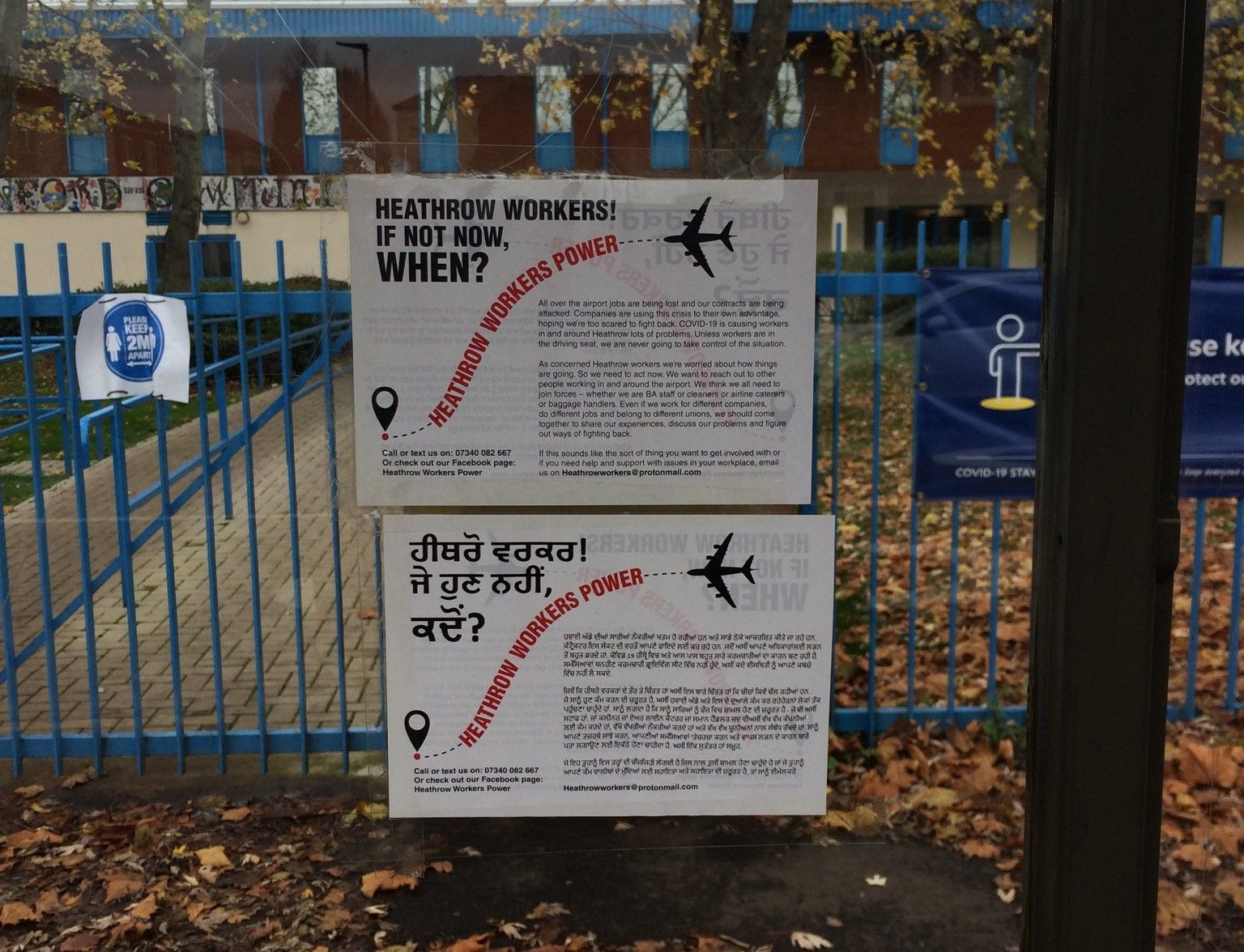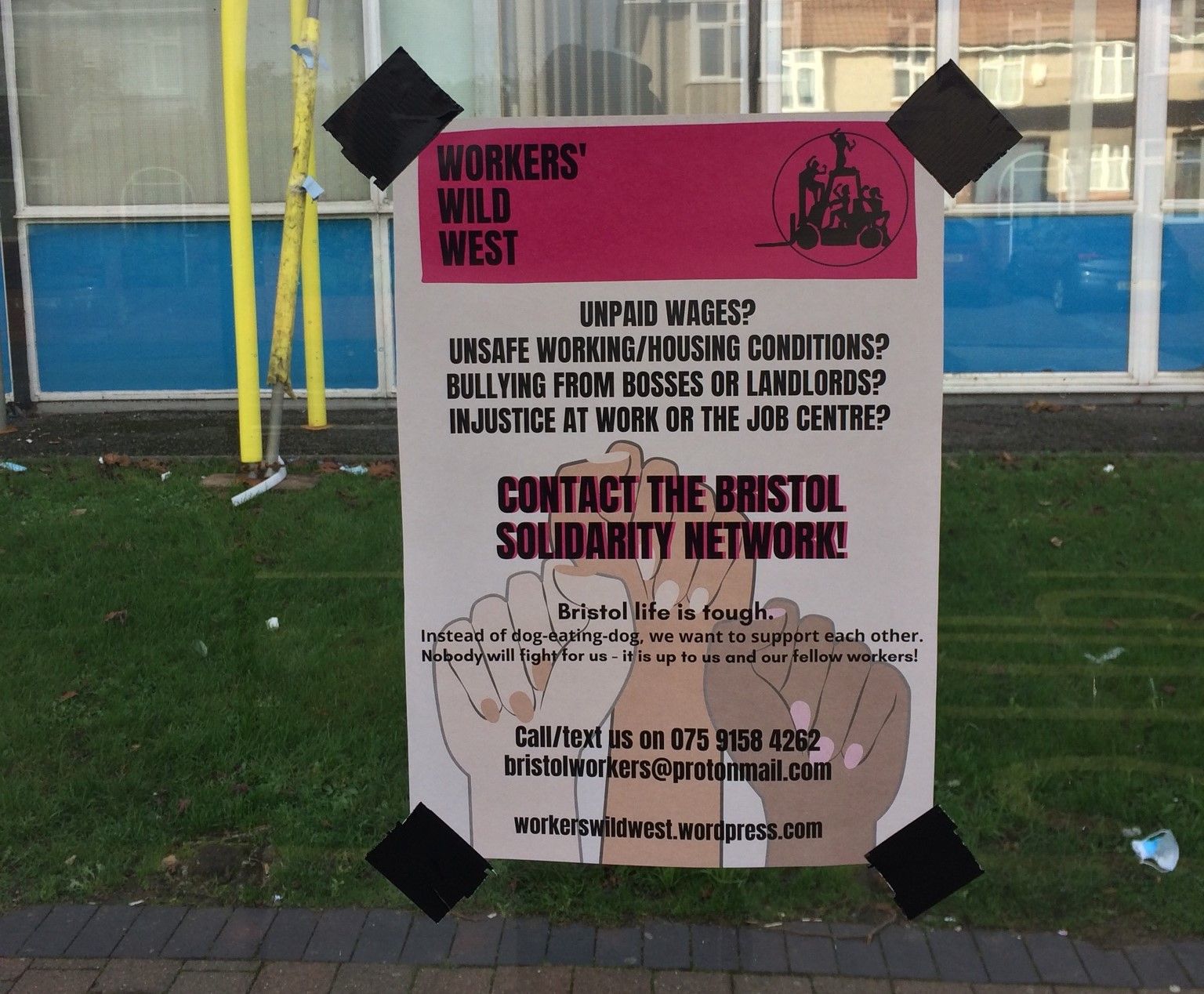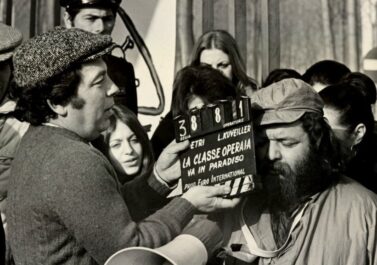This is an interview we did with comrades from The Commoner
This month we had the pleasure of speaking to AngryWorkers, whose words above perfectly encapsulate their unique take on political praxis. They are a space for enquiry, not union-building; for creating networks of support and resistance, not handing out flags and badges. In this interview you will get to know them and their work a little better, and be confronted with an approach to organising that challenges the unions of the both of the bureaucrats and the anarcho-syndicalists. You can find them online and on Twitter, and buy their book, Class Power on Zero Hours, from PM Press.
How did AngryWorkers come to be?
There are various influences that formed us. Before AngryWorkers we were involved in a libertarian communist group (the Commune) and a feminist collective (Feminist Fightback). We saw the limits of traditional left politics, which is mainly based on pamphleteering and campaigns. We wanted to re-ground communist and internationalist politics in a strategic section of the local working class. This is why we moved out westwards, into the logistics and food processing belt of London. This move, in turn, was influenced by our experiences within the German ‘workerist’ collective Wildcat, which has promoted workers’ inquiries since the 1970s. Workers’ inquiries are a militant analysis of the production process by workers and for workers’ power. The main premise is that if our daily work depends on the work of thousands of other workers here and abroad, mediated through company management and the market, then we can turn this cooperation into a weapon, into an international coordination of struggle. Another influence is the work of ‘Kamunist Kranti’ / Faridabad Majdoor Samachar, comrades in India, who have been circulating a workers’ newspaper with stories of informal workers’ actions and wider ‘communist ideas’ amongst thousands of industrial workers since the 1980s. We were then joined by comrades from Poland, who had varied organising experiences both in the syndicalist organisation ‘Workers Initiative’ and in the Anarchist Federation.
What part do you hope to play in the revolutionary movement?
We think that the working class – in its global totality and history – possesses the knowledge and resources to emancipate itself. The problem is that the working class exists within a divided and hierarchical social production process, that is criss-crossed by national borders, segmented into research and development offices and assembly plants, separated into collective workplaces and individual households. Parts of the working class are overworked and experience capitalism as an ever increasing productivity that sucks us dry and leaves us relatively poorer than our parent generation. Parts of the working class are unemployed and experience capitalism as a rust-belt, deserted in the search for cheaper labour and higher profits. All of this is in flux, there is no permanent surplus-population and no permanent industrial working class. Workers migrate and capital moves. What there is are shifting concentrations of workers whose collective power has ups and downs of regional boom and crisis. This means that working class struggle takes place within material confinements and regional cycles. Struggles in a booming platinum mine region in South Africa develop a different power and dynamic than a struggle in a care home in Yorkshire. A revolutionary organisation has to connect to the most advanced struggles and encourage them to bridge the gap to the rest of the class. In order to take over the means of production, various central segments of the class have to come together on an international level. The intellectual and tech workers, the essential industrial and agricultural workers and the wider mass of the angry, marginalised, and insurgent poor. We want to help the advanced struggles within these segments to break down the barriers. For that you have to be organised as much amongst the oil workers on strike as amongst the unemployed youth who blockade the refinery. We think workers who are eager to learn from their class history and who want to actively help struggles to communicate have a role to play and we want to organise ourselves with them.
How does your work differ from that of the typical union movement, or of syndicalist groups like the IWW or SolFed?
We don’t see ourselves as a union, but as a political group of workers. We think the first step for workers is to analyse their situation and then choose their weapons wisely. This includes analysing the balance of power with the company, the legal situation, the hierarchy within the trade union. In 80% of the cases workers will be better off finding direct but informal ways of struggle; in some cases you are better off engaging in a formal, and therefore legal, dispute. In these cases you want a legal vehicle that is in your hands and not in the hands of a removed union apparatus. Depending on your own strength you might be able to wrestle some concessions from the official trade unions and manage to control your own struggle within the confinements of the law – which is a very limiting framework. If that is not the case, workers can use a union vehicle that might have less resources, but also less of a controlling hierarchy.
We see the IWW in these pragmatic terms: as a limited vehicle for workers to conduct their struggle under specific circumstances. This will distinguish us from the common view within the IWW, which is that the IWW is the primary organisation for workers to conduct their struggle. This might also be a difference to most anarcho-syndicalist comrades. They think the workers should join and fight through the organisation, whereas we think that we, as a political organisation, should organise within the advanced point of struggle. There is a danger amongst syndicalists of fostering the ‘organisation fetish’ amongst workers – where it becomes the organisation, represented by symbols and flags and badges, which has the power, not workers and their collective actions. We know that in the short-term, and in particular during the low level of struggles, workers want to ‘join an organisation’ in order to feel stronger. The problem here is that in order to make people join, the organisation will have to portray itself as victorious at all costs, preventing critical reflections of defeats. And let’s be honest, most struggles end in partial defeats. To portray yourself as victorious in times where victories are hard to come by often results in half-deals with the bosses, which can still be presented as gains to the worker membership.
There is a limit to union power. In the UK in the 1970s union power was extremely developed. In many factories, unions decided who was hired and set the pace of work. The question here arises: who has the general power? Do we still accept the rule of the state, the market? The union power became entrenched and was politically beaten by the mid-1980s. In this regard we share a lot with our anarcho-syndicalist comrades – a hate for the state and authority, the urge for direct action and solidarity. But we don’t think that ‘anarchism’ as a utopia or ideology is helpful to really understand the potential for revolution. Here we are more Marxist and look at the actual contradictions of capitalism and the potentials of workers’ struggles given the fact that the production process nowadays has such a social and global nature.
In your published material you often mention of ‘solidarity networks’, how do they function and how are they organised?
The solidarity network relates to the fact that many workers are marginalised and have issues not just at work, but also with landlords, the job centre, the migration authorities. We offer direct support for individual workers through collective action. This in itself will hardly create any bigger collective dynamics. In general you are doomed to fight case after case, after which people return to their daily concerns. We therefore emphasise that workers should think about getting organised in their current job, and not just demand money from their former boss. We also hope that the solidarity network can grow to a certain point where it can actively support collective actions of minorities in a workplace. We have seen this happening in the logistics sector in Italy, where strikes often had to be reinforced initially by supporters blockading the warehouses. This might not be necessary in structurally stronger sectors, such as manufacturing, but in case of warehouses or agriculture, such external support is often crucial.

The solidarity network is also important to drive a wedge between the more marginalised sections of the working class and the middle-class they depend on. Recent migrants depend on middle-class members of their ‘community’ to find a job or a flat. The unemployed depend on the church, mosque or temple to survive. This is the basis for all reactionary tendencies, as the middle-class tends to use the marginalised elements to attack the organised sections of the working class. This is fascism. This is the Muslim Brotherhood. This is the mafia. In practical terms we organised three different weekly drop-ins, announced through posters we stuck up around the area. The solidarity network can help you to understand the local working class and to create contacts. Through helping Punjabi truck drivers in a small transport company we got to know drivers at the multinational airline caterer, Alpha LSG.
How do you interact with your community/ies, and what specific problems do they face?
For the reasons we mentioned above, we don’t tend to refer to ‘communities’ as such. The ‘Indian community’ in our area is characterised by sharp and very exploitative class lines. Many local small bosses, middle-managers, politicians, landlords, religious leaders are ‘Indian’ and exploit and manipulate workers who have recently arrived from India. The same is true for the ‘Black community’ or the ‘Muslim community’. We relate to other working class people – wherever they are from – through contacts at work. We get jobs in the bigger local workplaces and that’s where you meet people. With the high worker turnover that also means that after a year in a workplace with 1,000 people you will have contacts to some of the new workplaces where your ex-workmates shift to. Working in a Tesco distribution centre established contacts to truck drivers at Heathrow.
We also distribute our newspaper, that can get you talking, too. The main problems are pretty well known. Zero-hours contracts, shift work and long working hours, minimum wages. The usual stuff. The wider political regime forces workers into submission to their managers. Many non-EU migrant workers have to earn a particular amount in order to bring family over. This means they have to work overtime. This means they have to suck up to the middle-managers in order to get the overtime. Then there are the usual problems of organising childcare if both parents are on shift work. They often rely on family and friends. We could cry about all this, but we don’t. The left cries about overcrowded housing. We say ‘great, turn it into more collective arrangements of domestic work’. The left cries about agency work. We say ‘great, we don’t even have a company name to be attached to and loyal towards’. The left cries about lack of union membership density. We say ‘hooray, at least they won’t stifle workers’ actions once they emerge’. This is a bit of an ultra-left line, but we are bored by the whining background noise of the worker-friendly middle-classes.
What are some of the biggest issues that you have faced as a group, and what have you done/are you doing to move past them?
The biggest problem in the group of food processing factories that comrades worked in was that workers would not come to independent meetings after work. We’re talking here about four factories, situated in close proximity, with 4,000 workers. At work itself, talking is also difficult and you can’t move from department to department. We started a factory newsletter, but that created only a small number of additional contacts. One of us decided to become a shop-steward, despite the fact that management and union reps worked closely together. Women workers have been working on the assembly lines for two decades and have been paying their union dues, but were still paid a few pence more than the minimum wage. We pushed an independent line, first of all denouncing the rigged union rep elections. We had all reps against us. We then promoted a £1 more for all wage demand. Workers took it on. Management had so far been able to pay different increases for different skill levels, but we said everyone needs a £1 increase. The union reps tried to discourage workers to vote for the demand, but workers voted for it three times. We organised meetings for women workers, cleaners, cricket matches and family park meetings and gate assemblies as part of the wage dispute, but the combination of lack of confidence of workers and union reps that sabotaged the official union pay campaign meant that the strike ballot got stuck. We continued distributing our independent newsletter, proposing the following line: “Fellow workers, push the union to call for assemblies and tell the union what you want. If the union doesn’t do what you want, do it yourself”. But despite all efforts it was difficult to convince 4,000 workers, who had been divided, whose English was crap, who were constantly bullied, that workers united will never be defeated. The other main problem is therefore to keep up your morale. It can get frustrating. We have fun with our international comrades in France and Spain, visit them for chats and tapas and vino tinto or hang out in Berlin bars with our Amazon-working Polish friends. We read about working class history, current international struggles and capitalism’s long cycles, in order to look beyond the day-to-day defeats. In general it’s a good life.
What would you say was your biggest recent win as an organisation?
We don’t do wins! (Just kidding!) it would be boring to list the various four-digit monetary wins of the solidarity network or the little gains through informal job actions. Our biggest win is that we entered this area as two isolated communists and after a few years we had contacts in three dozen of bigger local workplaces, a friendship circle of 30 to 40 working class people around the solidarity network and 2,000 workers in our workplaces who knew us as worker militants who might talk funny things about revolution, but who are honest and not scared of the boss. We also established dozens of international contacts with working class comrades abroad. Daily struggles are important, and we had a few of them, but it’s equally important to get prepared. Struggles don’t develop gradually, they emerge in leaps and bounds, often without being the result of ‘organising efforts’. We want to be an example for other revolutionaries to get rerooted in the local working class, while developing a wider internationalist communist horizon at the same time. We think we managed to encourage a few others to do this.

What advice would you give to those wanting to create an organisation like your own?
Read Marx or other stuff to understand how the wider system works. Do that together. Support each other in your daily life. Pick an area that seems interesting from a political point of view, perhaps because there are bigger workplaces or new workers or there have been struggles before. You can easily set up a solidarity network and see what comes back. It’s more interesting and fruitful though to get jobs in bigger workplaces yourself. There is a lot of literature out there in case you are new to that type of environment. Comrades took this step before you. More important than Marx: learn from the other workers around you. Even if you have read four books, be humble. Start a local publication for workers, with reports about conditions and struggles at work, about what other workers are doing elsewhere around the globe, about how our daily struggle relates to our hope for a better society. Don’t get bogged down in your locality. Reach out to other comrades, reflect on what you are doing in the bigger mirror of space and time.
Is there anything else you would like to add that we have not covered already?
There’s loads more, but you can read up on that in our book ‘Class Power on Zero-Hours!’ Honestly, if you think along similar lines, please get in touch. We have regular meetings with comrades in different towns and can help you set up a local group by sharing experiences.
Buy your book here!



